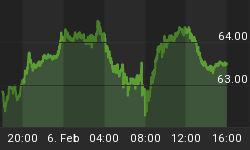Hank Paulson's valedictory interview was another depressing reminder of how deeply rooted many economic fallacies are. The fault for the financial crisis does not lie with domestic monetary policy or Greenspan's incompetence but with those lousy Chinese who insist on saving instead of whooping it up on over-extended credit cards. Next in line are the exploiting oil exporters and their financial shenanigans. The combined effect of the reprehensible behaviour of these scoundrels was to flood the world with super-abundant savings which lowered interest rates and triggered an unsustainable boom. According to the ever-so clever Mr Paulson
Excesses ... built up for a long time, [with] investors looking for yield, mis-pricing risk," he said. "It could take different forms. For some of the European banks it was eastern Europe. Spain and the UK were much more like the US with housing being the biggest bubble. With Japan it may be banks continuing to invest in equities.
This argument has been around for years and was endorsed by Bernanke. Early last year Mr Glenn Stevens, governor of the Reserve Bank of Australia, lent it support in a paper titled Recent Financial Developments. In his profound opinion
[a]n excess of saving over investment in Asia was a feature, resulting partly from the reaction to the late 1990s crisis and the determination to avoid a repeat of it.
The excess-savings thesis has the enormous virtue of absolving central bankers from any responsibility for the financial crisis by insinuating that it was caused by market failure that the appropriate regulatory framework can eventually deal with. All that is needed to establish international financial stability is for central banks to develop macroeconomic co-operation among themselves. Naturally, there must also be greater domestic regulation of financial institutions and money markets
What a self-serving crock! The fallacy of excess savings was demolished by the classical economists. Jeremy Bentham advanced the idea but abandoned it after James Stuart Mill had explained to him its impossibility. (The fallacy was later resurrected in 1829 by Wakefield in his Letter from Sydney and then accepted in a very diluted form by John Stuart Mill). What these financial mavens call "excess savings" is just plain old inflation.
Let us assume that some lucky devil with $1,000,000 to spare deposits it in a bank which then lends it out according to the banking system's reserve requirements with the result that the original deposit is pyramided into $10,000,000 of deposits. Can it no be argued that the banking system now has excess savings to the tune of $9,000.000? Of course it can. It would also be fallacious to do so. What we really have here is credit expansion -- and it is credit expansion that fuelled the world-wide boom that brought us the global financial crisis.
Now for a few financial facts that I cobbled together, the sort of things that central bankers are supposed to be experts on. From 1994 in China demand deposits plus foreign currency deposits expanded by about 100 per cent. US money supply defined as currency plus all checking demand deposits and savings deposits rose from 1996 to 2008 by about 120 per cent*. It was even worse for Australia. From March 1996 to October 2008 currency rose by 129 per cent, bank deposits 201 per cent and M1 by 185 per cent. It was the same story in the rest of the world.
And it was this global monetary expansion that created the imbalances that gave Paulson heartburn. Yet none of this is new. The same 'experts' who gave us the current financial mess are the same ones who warn us about the necessity of maintaining a stable prices level. But one of the great lessons of the nineteenth century is that falling prices due to increased productivity do not squeeze profits even though they raise real wages. Price stabilisation schemes are in fact inflationary policies. It has been argued that after rapid inflation caused by the gold discoveries of 1848 and 1851 the steady gold supply stimulated output and stabilised prices for some 20-odd years. However, Cairnes pointed out that
the action of the new gold on prices will not be uniform, but partial. Certain classes of commodities will be affected much more powerfully than others. Prices generally will rise, but with unequal steps ... The movement will be governed throughout its course by economic laws. (John E. Cairnes, Essays in Political Economy, Mcmillan and Co., 1873, p. 57)
In other words, monetary expansion -- not genuine savings -- create imbalances. But what are real savings? They are the process of transforming present goods (money) into future goods (capital goods). The only kind of savings that credit expansion can create are "forced savings". (See, for example, Jeremy Bentham, Thomas Malthus, Henry Thornton, Knut Wicksell, Ludwig von Mises, Friedrich von Hayek).
Every single member of the Austrian school of economics saw the crisis coming, even if they couldn't put a date and a time on its arrival. Nevertheless their warnings were completely ignored. (Kaletsky even had the bloody nerve to pretend that no one predicted the crisis. [How we all got it wrong this year, The Australian, 30 December 2008]. In his narrow little mind the Austrians only exist as "fundamentalists").
*These are only rought estimates. Nevertheless, it is indisputable that there has been a reckless monetary expansion.















